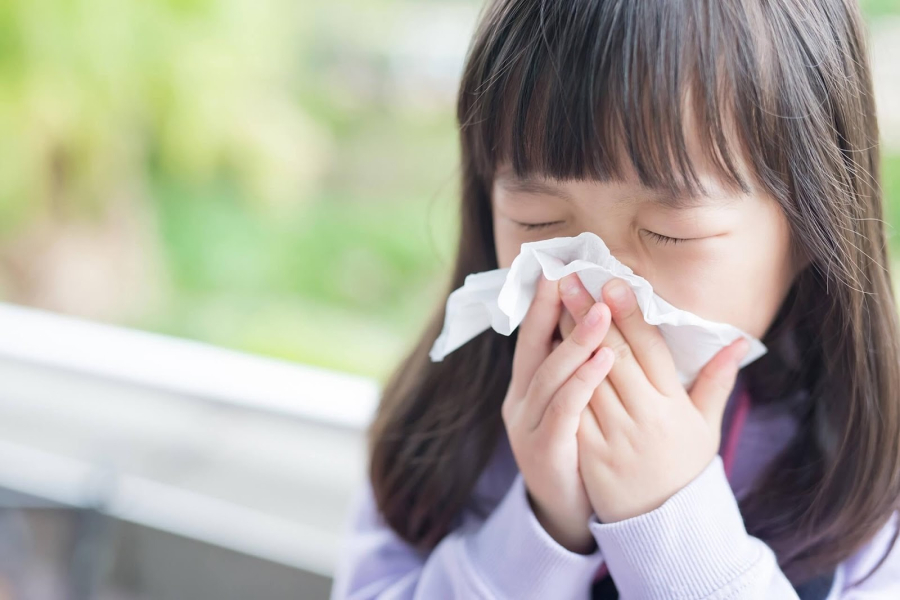Eye Crust in Infants
Eye crust is a natural physiological process that occurs when the eyes are at rest. It is a normal reaction of the body. During periods of inactivity, fluid is secreted to keep the eyes moist. But because the eyes do not move while sleeping, this fluid gradually becomes thicker and accumulates, eventually being pushed out of the corners of the eyes, creating the phenomenon of eye crust. That’s why it is completely normal and natural for a newborn’s eyes to have crust.
Usually, the eye crust does not significantly affect the health of the child and does not require excessive worry. It is a natural process in the development of a child’s eyes. Eye crust tends to decrease and disappear on its own when the child’s eyes begin to move and blink more frequently.
When a baby cries, it is also a natural way for the baby to clean their eyes and keep the tear ducts clear. Over time, this condition will resolve itself without the need for any special medical intervention.

Sneezing in Infants
When a baby sneezes, it helps to clear mucus and accumulated dirt from the nose. Sneezing in a baby without other symptoms such as fussiness, fever, or refusal to breastfeed is considered normal.
In some cases, dust or something uncomfortable in the nose may cause irritation and make the baby’s nasal cavity sensitive. Therefore, it is best for parents to bring the baby to a cleaner place to help the baby get rid of this condition. Cleaning the baby’s nose instead of self-administering medication is recommended.
If parents notice that the baby sneezes frequently along with other symptoms such as nasal congestion, runny nose, fever, etc., it is advisable to take the baby to a doctor to determine the cause. This could be a warning sign of respiratory tract problems.

Stuffy Nose and Runny Nose
In adults, when they have a cold or sinusitis, they often experience nasal congestion and runny nose. But for newborns, it’s different. The baby’s nasal cavity is very short and small, and there is a lot of mucus, so the baby cannot clean their nose on their own.
As a result, the baby cannot breathe and inhale air or remove any irritants such as dust. This is the cause of the baby making a wheezing sound, and if not cleaned in time, the baby’s nostrils can become blocked.
When a baby has symptoms of nasal congestion but no other signs of illness, it does not necessarily mean that the baby is sick. In this case, parents should clean the baby’s nasal cavity with physiological saline solution or saline solution with a nasal aspirator. Parents can seek advice from experts or doctors for specific instructions on how to clean the baby’s nose.
In addition, while taking care of the baby, parents can consult with a doctor or healthcare professional to better understand the baby’s condition. Experts advise that parents should not self-administer medication or treatment without guidance from a healthcare professional.
































